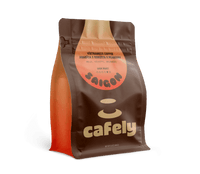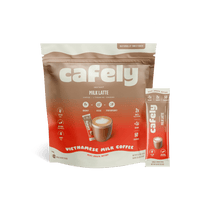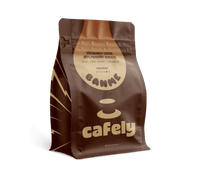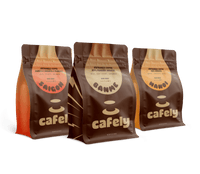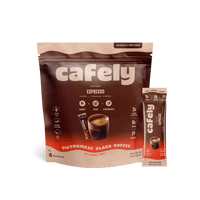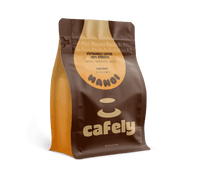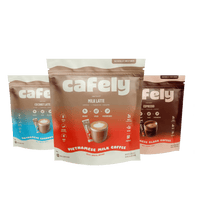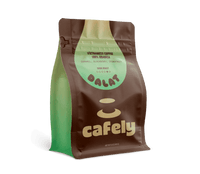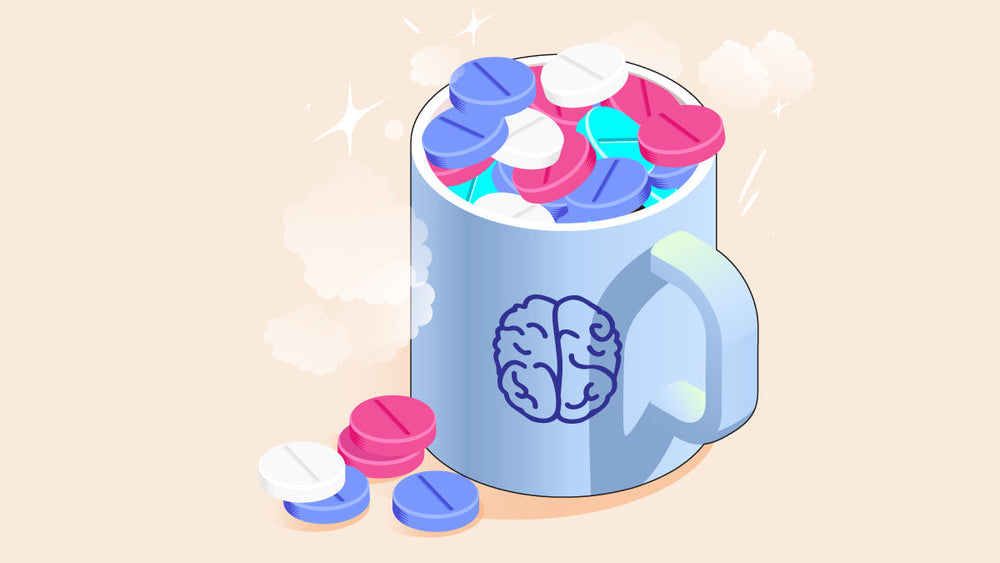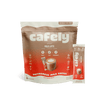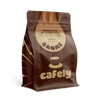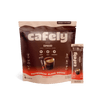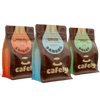A lot of people who take Adderall still want their morning coffee. Caffeine is part of most daily routines, especially first thing in the morning. Nearly 70% of Americans consume caffeine daily, mostly through coffee.
Both Adderall and caffeine are stimulants. They act on the brain, boost alertness, and can raise your heart rate [1].
On their own, they’re manageable. Together, they can push your system too far, especially if you take them close together.
Taking Adderall and coffee too close together can lead to overstimulation, anxiety, nausea, or focus problems.
In this article, you’ll learn how long to wait between the two, why it matters, and what kind of coffee is easiest on your system.
How Long After Taking Adderall Can I Drink Coffee?
In most cases, it’s best to wait three to four hours after taking Adderall before drinking coffee.
This window gives your body time to process the medication before adding another stimulant. It won’t remove the risk entirely, but it can lower the chance of side effects like shakiness or anxiety.
If your prescriber tells you something different, always go with their advice first.
Within 30 to 60 minutes, Adderall reaches peak levels in your bloodstream. That’s when your brain gets the biggest dopamine and norepinephrine boost.
If you add caffeine right on top of that, you’re doubling the stimulation during the most intense window. That’s when things tend to go wrong.
Spacing them out lets your system settle before adding more stimulation. It also helps you stay focused without tipping into restlessness or mental fog.
Why Spacing Them Apart Is So Important

Adderall raises neurotransmitter levels to help with focus and energy [1]. Caffeine blocks adenosine, the chemical that makes you feel sleepy [2]. In different ways, they both shift your brain into “on” mode.
But too much stimulation at once doesn’t mean more focus, and you might feel edgy, uncomfortable, or completely scattered. It’s a fine line between feeling energized and feeling overwhelmed.
From the physical perspective, too much stimulant activity can raise your blood pressure, speed up your heartbeat, and trigger headaches or nausea [3].
And if you’re running on an empty stomach or you haven’t had enough water, it gets worse. Your digestion and your sleep can suffer.
If you’re new to Adderall, the side effects may hit even harder.
What Happens If You Mix Them Too Soon?
If you take Adderall and follow it with coffee too early, you’ll probably feel the common side effects, like shakiness, nervous energy,muscle cramps, or that uncomfortable, wired feeling.
Your heart might race. You might lose your appetite or feel queasy. Instead of a clear focus, your thoughts may bounce around without direction.
Here’s what that can look like in real life:
- You take your Adderall on an empty stomach.
- Fifteen minutes later, you pour your usual coffee.
- An hour in, your hands are jittery, your chest feels tight, and your mind won’t settle.
- This feeling can last anywhere from 20 minutes to 2 hours.
Mixing caffeine and Adderall is not a great idea… You need a gap between your medication and your coffee. Give Adderall time to settle. Let the peak effects pass.
Then, if you still want caffeine, keep it light and sip it slowly. That small change can make a big difference in how your day feels.
What Happens If You Mix Adderall and Coffee Too Soon?
Combining Adderall and coffee too early can hit your system harder than you expect. Since both are stimulants, the effects don’t just add; they multiply.
If you don’t give your body enough time to process the Adderall first, you may end up feeling worse, not better.
Physical & Mental Side Effects
The most common side effect people notice is jitteriness. Your hands might shake. You might feel on edge without knowing why. That wired feeling doesn’t always come with extra focus; sometimes, it brings the exact opposite.
Common physical and mental side effects from combining Adderall and caffeine [1]:
1. Fast Heart Rate
Caffeine and Adderall both raise your heart rate, especially during their peak hours. Take them too close together, and your heart can feel like it’s racing for no reason. This can feel uncomfortable, even scary, if you’re not expecting it.
2. Anxiety can also creep in.
Some people report tightness in the chest, restlessness, or a general sense of panic. If you’re sensitive to stimulants or prone to anxiety already, this combo can make it worse.
3. Stomach issues
You might feel nauseous, bloated, or lose your appetite completely. When your digestion is overstimulated, food won’t sit well, and if you haven’t eaten at all, the side effects tend to hit harder.
4. Insomnia.
If you drink coffee too soon after Adderall, especially in the afternoon, the stimulation can linger late into the night. Even if you feel tired, your brain may refuse to shut off. That creates a sleep-deprivation cycle, which makes Adderall less effective the next day.
How Much These Effects Vary
Not everyone feels these symptoms the same way. Some people barely notice anything, while others feel off after just one misstep. Your response depends on several factors:
- Your Adderall dosage: Higher doses come with stronger effects.
- Caffeine tolerance: If you don’t usually drink coffee, it may hit harder.
- Timing: Taking them an hour apart feels very different from spacing them out.
- Body weight and metabolism: These affect how fast you process both substances.
- Food and hydration: An empty stomach or low fluid intake makes side effects worse.
If you’re new to Adderall, you need to be extra cautious. Your body needs time to adjust to how it processes the medication. Adding caffeine during that adjustment window can trigger stronger reactions, both physically and mentally.
Dehydration is another risk. Adderall and caffeine are both diuretics, which means they can pull water out of your system. Without enough fluids, your symptoms can intensify. Think dry mouth, headaches, dizziness, and fatigue, all signs that your body needs more water.
Can You Ever Combine Adderall & Coffee Safely?
Yes, some people handle Adderall and coffee just fine. But the ones who do usually follow a routine. They’ve figured out how to space them out, limit caffeine intake, and listen to their body’s signals.
If you want to use both without the negative side effects, it’s possible, but only with careful timing and awareness.
Tip #1: Space Them at Least 3 to 4 Hours Apart
Don’t drink coffee right after taking your Adderall. Let your medication absorb fully and reach its peak first.
For most people, that happens within an hour. After that, it takes a few more hours for the stimulation to level off. That’s when your system can handle a smaller caffeine dose without tipping over the edge.
For example, if you take Adderall at 8:00 a.m., aim to drink coffee no earlier than 11:00 a.m. That gives your body time to stabilize. If you still feel like you need a boost, start with half a cup or something low in caffeine.
Tip #2: Pay Attention to Dosage and Type

Immediate-release Adderall hits fast and hard. Extended-release versions spread the effect throughout the day. If you’re on an XR version, your window for adding coffee safely may be different.
Also, know how much caffeine your coffee contains. A small 8-oz cup might have 80 to 100 mg. But cold brew or large espresso drinks can have well over 200 mg per serving. If you’re using strong brews, scale down the portion.
Some people do better with green tea or low-caffeine blends instead of regular coffee. These options give a lighter energy boost with fewer jitters.
Tip #3: Never Drink Coffee on an Empty Stomach
Make a habit of never drinking coffee on an empty stomach because stimulants hit harder when there’s no food to buffer them. You’re more likely to feel nausea, dizziness, or nervous energy that won’t go away.
Always have something in your stomach, ideally with protein and complex carbs. A simple breakfast like eggs and whole-grain toast can help your body absorb the medication more smoothly. Then, if you add caffeine a few hours later, the effects are much easier to handle.
Tip #4: Hydrate Throughout the Day
Dry mouth, headaches, and fatigue are common when you're not drinking enough water. Keep a bottle nearby and sip regularly, especially if you're using both stimulants on the same day.
Avoid sugary drinks or anything with extra caffeine (like energy drinks or soda). Stick to water, herbal teas, or electrolyte-rich options if you need more support.
Tip #5: Track Your Body’s Response
No one knows your body better than you. If something feels off, it probably is. Keep mental notes, or even write them down, on how you feel when you space out coffee and Adderall versus when you don’t.
Look for patterns like:
- Increased anxiety after coffee
- Trouble sleeping on coffee days
- Stomach issues when fasting
- Better focus when spacing them out
Use that data to adjust your habits. Some people find that cutting their caffeine in half or switching to a lighter roast makes a big difference. Others realize they only need coffee on certain days.
If you’re not sure what’s safe, talk to your prescriber. They can guide you on whether your caffeine intake needs to change, and if so, how much.
Best Coffee to Drink While on Adderall
If you’re on Adderall and still want to enjoy coffee, the type you choose matters. The wrong coffee, especially one high in caffeine, sugar, or acidity, can make side effects worse. But with the right blend, you can still enjoy your cup without overstimulating your system.
Why Lighter, Milder Coffees Work Better
You want a gentle lift, not a spike that sends your heart racing or your focus spinning. That’s why low-caffeine, low-acid coffees are your best bet.
Look for blends with less than 100 mg of caffeine per serving. For reference, a standard cup of brewed coffee often contains 95 to 165 mg. Cold brew, espresso, and energy drinks go even higher. So if you’re drinking regular coffee while on Adderall, you might be doubling up on stimulation without realizing it.
Low-acid coffees are also easier on your stomach, especially if you’re prone to nausea or digestion issues. Adderall can already irritate the gut if taken without food, and acidic coffee just adds to the discomfort. That’s where certain Vietnamese-style coffees stand out.
Here are a few popular low-acid options from Cafely:
- Cafely HaNoi – 100% robusta beans roasted to a deep, consistent darkness. Grown at low altitudes for minimal acidity and strong earthy flavors. Expect bold notes of malt, cocoa, and toasted nuts.
- Cafely Vietnamese Coffee 2.0 – Instant espresso packets made from low-acid robusta beans and infused with adaptogens like ginseng and L-theanine.
- SaiGon OG – A complex, balanced blend of Vietnamese arabica, robusta, and rare peaberry beans. Dark roasted with clarified butter to bring out caramelized sweetness and smooth texture.
Each of these coffees offers a smoother, more grounded experience, something you want when stimulants like Adderall are already in your system.
Mild, mellow flavor profiles help, too. If your coffee is naturally smooth, you won’t feel the need to mask it with sweeteners, cream, or flavored syrups. That matters because high-sugar drinks can cause blood sugar spikes, followed by sudden crashes in energy or focus. When you’re trying to stay stable on Adderall, those crashes can be disruptive.
What to Look for in a Coffee Blend
If you're choosing coffee to pair with Adderall, keep these points in mind:
- Caffeine content: Stay under 100 mg per serving. Some specialty roasts go as low as 50 mg.
- Roast level: Lighter roasts tend to contain more antioxidants and may offer milder stimulation.
- Acidity: Choose low-acid coffee blends, especially if you have stomach sensitivity.
- Flavor: Go for natural smoothness. You shouldn’t need sugar to make it drinkable.
- Processing method: Swiss water–processed decaf or slow-roasted beans are often gentler on digestion.
Some light roast coffees also offer potential antioxidant and anti-inflammatory benefits. Research suggests that light roasts may retain more polyphenols, natural compounds linked to cell protection and reduced inflammation [1]. That won’t cancel out the stimulant effects of caffeine, but it may give your body a little extra support when stress levels rise.
Coffees to Avoid

Not all coffee works well with Adderall. Here are a few to skip:
- High-caffeine blends: Anything over 150 mg per serving can lead to overstimulation.
- Cold brew: Often contains more caffeine than hot coffee, especially in large servings.
- Espresso-based drinks: Lattes and Americanos may be strong, even if they taste smooth.
- Sweetened or flavored drinks: Syrups, whipped cream, and sugar-free sweeteners can all spike energy briefly, then drop it fast.
- Highly acidic blends: These can upset your stomach or amplify nausea, especially on an empty stomach.
Even if you’re used to strong or sweet coffee, try switching things up. With Adderall in your system, what worked before might feel overwhelming now.
FAQs: How Long After Taking Adderall Can I Drink Coffee?
Here are clear answers to common questions about mixing Adderall and coffee.
1. Can I Drink Coffee After Taking Adderall?
Yes, but you should wait 3 to 4 hours after your dose to avoid overstimulation.
2. Does Caffeine Make Adderall Hit Harder?
Caffeine can intensify side effects like anxiety, jitteriness, and restlessness in some people.
3. How Long Should I Wait To Drink Coffee After Taking Medication?
It’s generally safest to wait 3 to 4 hours unless your doctor gives different instructions.
4. How Long Does 10mg of Adderall Last?
For immediate-release Adderall, 10 mg usually lasts 4 to 6 hours. XR versions can last 10 to 12 hours.
5. Does Caffeine Make ADHD Sleepy?
In some people with ADHD, caffeine may have a calming effect instead of a stimulating one.
6. What Cancels Out Adderall?
Antacids, vitamin C, and acidic foods or drinks can slow how your body absorbs Adderall.
7. Does Coffee Stop The Absorption Of Medication?
Coffee can affect the absorption of some medications. Ask your doctor or pharmacist for details.
8. What Is Stronger Than Adderall?
Other prescription stimulants like Vyvanse or Dexedrine may be stronger, but they require a doctor’s approval.
9. Does Coffee Make Medication Less Effective?
In some cases, coffee can reduce how well a medication works or increase its side effects.
10. Why Is Coffee Suddenly Making Me Feel Sick?
You could be overstimulated, dehydrated, or more sensitive due to your medication. Taking coffee and Adderall too close together may also be the cause.
References:
- Wu, H., Lu, P., Liu, Z., Sharifi‐Rad, J., & Suleria, H. A. R. (2022). Impact of roasting on the phenolic and volatile compounds in coffee beans. Food Science & Nutrition, 10(7), 2408–2425.
- Institute of Medicine (US) Committee on Military Nutrition Research. (2001). Caffeine for the Sustainment of Mental Task Performance: Formulations for Military Operations. National Library of Medicine; National Academies Press (US).
- Nanda, A., Sai, L., Sambe, H. G., Yasir, M., Eyn, R., Gogikar, A., & Mohammed, L. (2023). Adverse Effects of Stimulant Interventions for Attention Deficit Hyperactivity Disorder (ADHD): A Comprehensive Systematic Review. Cureus, 15(9).
